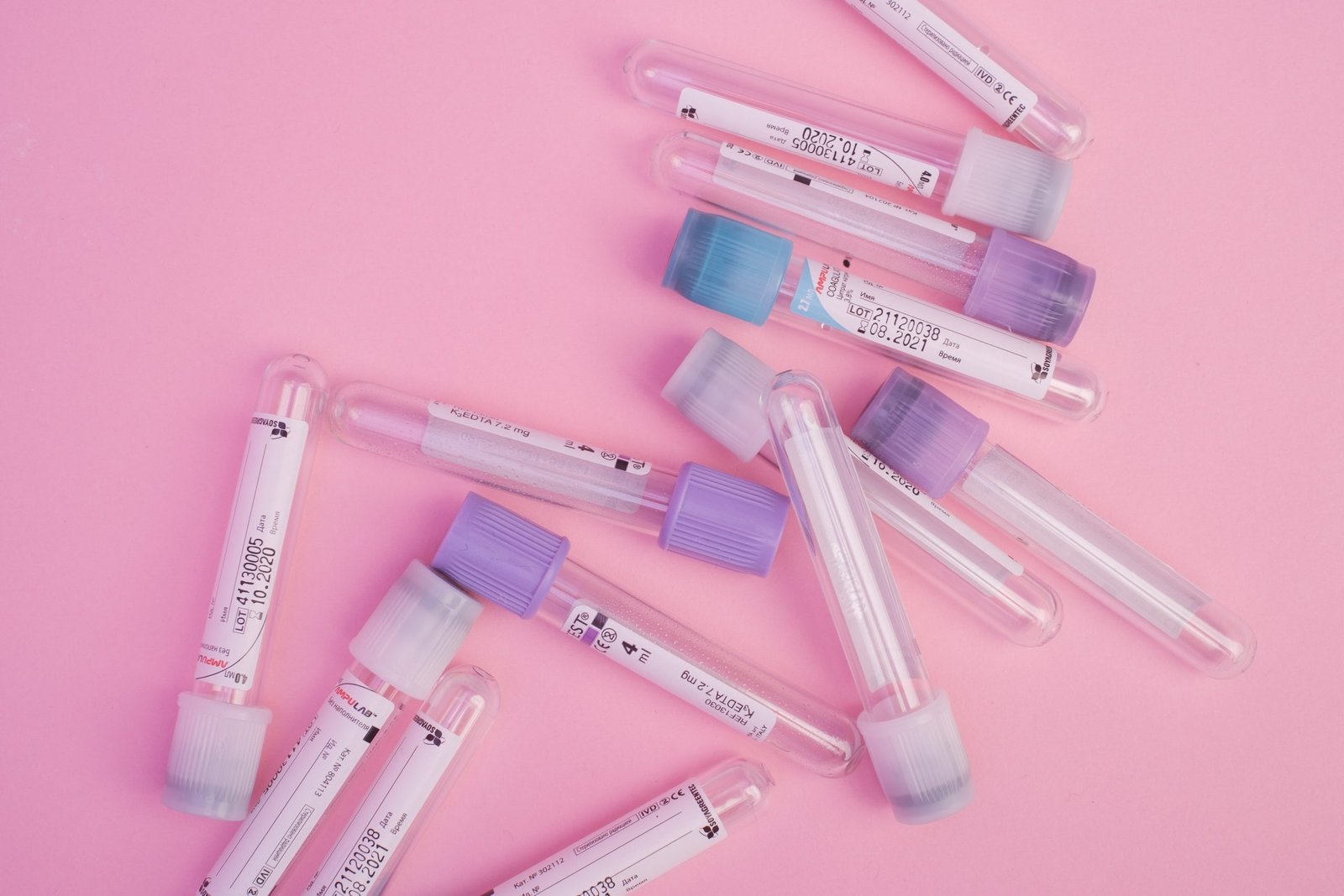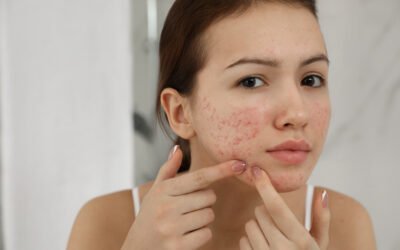If you’re still struggling with chronic acne after feeling like you’ve tried everything, I’ve also been where you are right now. Staring at my reflection, wondering what on earth is causing this relentless skin rebellion. Is it the food I’m eating? My hormones going AWOL? The stress of daily life, or the stress of having a skin condition?!
I’ve been down the rabbit hole of acne remedies, trying every potion, lotion, and supplement that promised to give me the flawless skin I longed for – and did any of them work? Yes, actually. But only in the short term, not the long term. Those annoying blemishes (or cysts) returned after a few weeks – a month if I was lucky.
You find yourself stuck in a cycle of hope, disappointment, and despair as you battle those blemishes without real answers.
But what if there is actually something that can help you identify the cause? Something that can solve all the guesswork, and tell you exactly where to focus? What if I told you there’s a way to uncover the mystery behind your acne, and finally get results – and results that last?
This blood test is the answer to your skin woes.
You can finally uncover what’s driving your acne by doing a blood test, not just any old blood test. We need a seriously in-depth blood test to see what’s going on beneath the skin’s surface.
You might be thinking – I’ve already had one done, and my doctor said everything was normal, so blood tests can’t be that good.
Well, there are two things to consider when you have a load of symptoms, and everything comes back ‘normal’.
1) ‘Normal’ doesn’t always mean optimal.
You can have ‘normal’ levels on a blood test but still have symptoms. And that’s because the ranges can be so large. Within that ‘normal’ range is sub-optimal. Meaning it’s not that bad – but it’s bad enough to cause symptoms still. Maybe it’s not bad enough for medication, and that’s why you got ‘no further action’. But do we sit and wait until it gets bad enough for medication? Or do we do something about it now? If you’re reading this blog, you’ll probably choose to do something about it now.
2) You don’t always get everything checked.
Blood tests can have a high price tag, so depending on your symptoms, your doctor will only check what they think is necessary and linked to your presenting symptoms. Why should they check blood glucose levels if you’ve got no signs of diabetes? It doesn’t make sense, does it?
But I know it could be beneficial to check your glucose levels – because your blood glucose can impact your hormones, (especially testosterone), which then contributes to blocked pores, and then contributes to acne.
Or, they may have just tested your hormones, and testosterone is out of range. But what’s driving that hormonal imbalance? Is it stress? Is it blood sugar issues? Gut issues? Who knows! You won’t know because they only tested your hormones.
Let’s skip the guesswork.
I know it sounds almost too good to be true, but this blood test delves deep into your body’s imbalances, uncovering potential triggers that might be fueling those frustrating breakouts. It’s like having a secret weapon to target acne at its source, rather than just trying to cover it up with concealer (and sometimes medications like the pill) and hoping for the best.
I like to use FunctionalDx’s Ultra blood test, which in my opinion, is the best blood test for acne. It looks at 90 different biomarkers, including:
- Blood glucose
- Kidney function
- Electrolytes
- Cardiovascular checks
- Inflammation
- Vitamins
- Minerals
- Liver function
- Gallbladder function
- Lipids (cholesterol)
- Thyroid
- Hormones (testosterone, oestrogen, progesterone, SHBG)
- Full blood count
At a glance, you might think ok but what the heck do all those markers have to do with my skin health?
How a blood test can help clear hormonal acne.
As mentioned earlier, knowing if you have hormonal acne is great, but what’s driving it? Is it nutrient deficiencies? (zinc, magnesium, b vitamins and healthy fats are needed to create hormones), is it stress? Electrolyte balance can give an insight into adrenal health (the organs that regulate your stress response). Is it blood glucose? Increased glucose and insulin have been found to increase testosterone. Is it low-grade chronic inflammation? ESR, CRP, HsCRP and ferritin can all help discover if it’s that, and low vitamin D levels can affect how well our immune system functions.
See how we can piece everything together from the results of this test?
Let’s say you have a family history of diabetes or cardiovascular disease. Wouldn’t it be a good idea to check how your body is doing? Like how we take our car for a regular MOT – so you can make the changes now to prevent the risk of a heart attack in 20 years’ time?
You may have PCOS, and as well as clearing your acne, you want to help support your fertility outcomes or reduce some of the other side effects associated with the condition. You can only do that if you know what’s going on internally.
The best part about this blood test is that with this knowledge, you can make informed decisions about your lifestyle, diet, and skincare routine. No more guesswork, no more wasting time and money on products that only offer false promises. You’ll be equipped with the knowledge you need to take charge of your skin’s destiny and bid farewell to those pesky pimples once and for all. And, you get the added bonus of helping to prevent the onset of other chronic diseases later on in life.
So, if you’re tired of the acne guessing game and ready to take gain control over your skin, we can do it together. All you need to do is book a call so we can get started to help you achieve the clear, radiant skin we’ve always dreamed of.
Until then, hang in there, and remember, there’s hope on the horizon; your skin can heal!





0 Comments